This article contains spoilers for Dead Space and Dead Space 2, if you want to avoid spoilers ahead of the release of the remake.
I’ve heard many arguments about how Dead Space 2 loses sight of what made its predecessor harrowing, that it’s not really a horror game, that it’s unsubtle. These arguments seem to take issue with Dead Space 2 for not being another game entirely, rather than taking it for what it is.
Dead Space 2 is an action-packed thrill ride that makes you hurt for every victory. Trying to recreate the exact same struggle of Dead Space would’ve been next to impossible, especially given protagonist Isaac Clarke’s experience. It makes perfect sense to let Isaac be capable and up the challenge as a result. Surviving in Dead Space 2 isn’t any easier, especially on the suggested difficulties.
You can know every level like the back of your hand, have an optimized loadout, and a stacked inventory and still burn through everything if a fight goes wrong. It’s not a transition to action, but an upped intensity of existing action. Instead of chasing after a fear returning players would be inoculated against, Dead Space 2 digs into the panic that comes with knowing.
What’s brilliant is that Dead Space 2 does this while accounting for player failure. This isn’t like Uncharted where failure is caused by not perfectly following a script. For however linear it may be, Dead Space 2 respects the hell out of your player agency. The loot tables adjust not only by difficulty setting but by what weapons you wield. Whenever possible, each situation has multiple solutions.
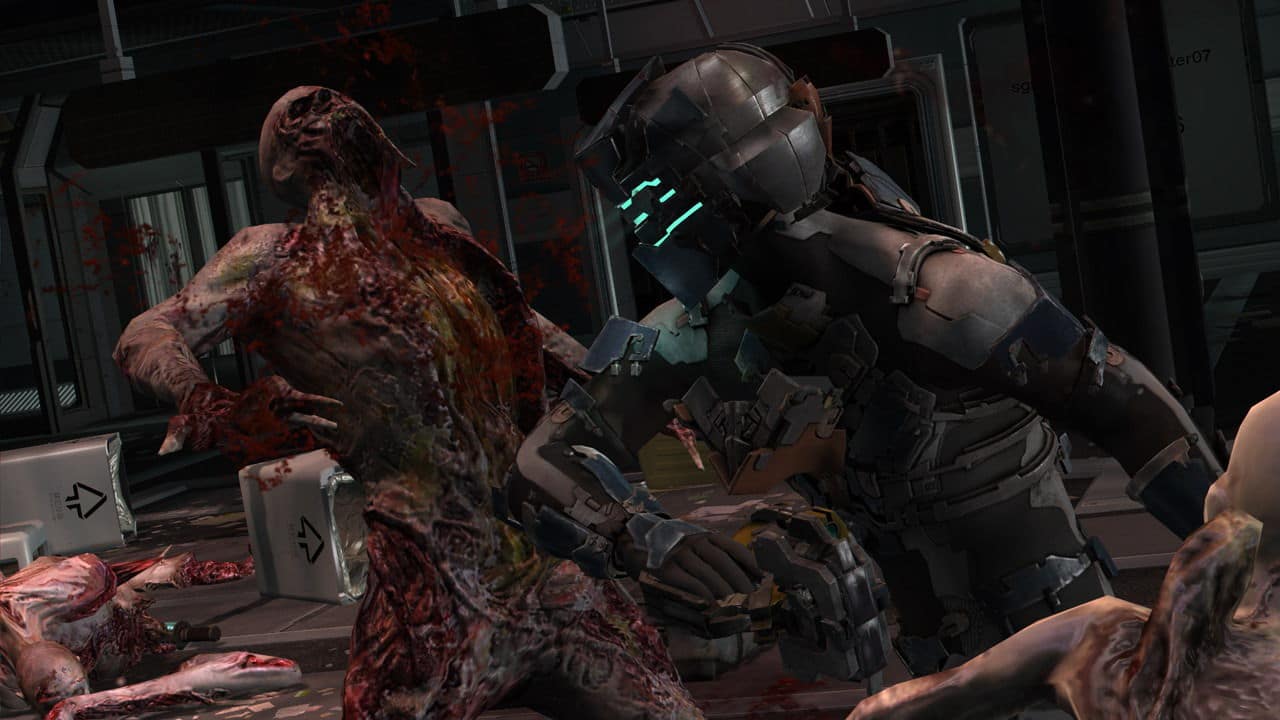
Being tracked by Stalkers? You could use trip mines, but it’s also possible to wield telekinetic explosives, use stasis and charged line gun bombs, or be risky and wait for them to charge to cut out their vulnerable legs. That’s just one enemy type, with additional factors to consider such as the layout of where they ambush you, ammo supplies, and mistakes made.
Hell, even Cysts — just stationary organic mines that spew an explosive charge when triggered — have multiple uses. If you’re being attacked by mobile enemies, you can grab their explosives mid-release and blast an enemy for free. A dangerous hazard can be a major asset if you exploit it well.
This organic interplay is at the heart of what makes Dead Space 2’s survival mechanics so replayable. Yes, certain guns are more utilitarian than others, but that’s inevitable in every combat system. That so many of them offer unique alternative solutions to overlapping problems allows for considerable tailoring to a player’s preferences. It’s empowering at the best of times, but equally unnerving whenever you have to think fast with sub-optimal options.
That central thread of experience not being enough is what frames everything else. Yes, Isaac is familiar with the necromorphs and the ancient alien Marker monoliths that cause the infection. He’s also permanently mentally scarred by the incident, found the love of his life dead, and was manipulated by his government and an intergalactic cult into creating another Marker that kicks off the events of Dead Space 2. To say he’s on top of things would be generous.
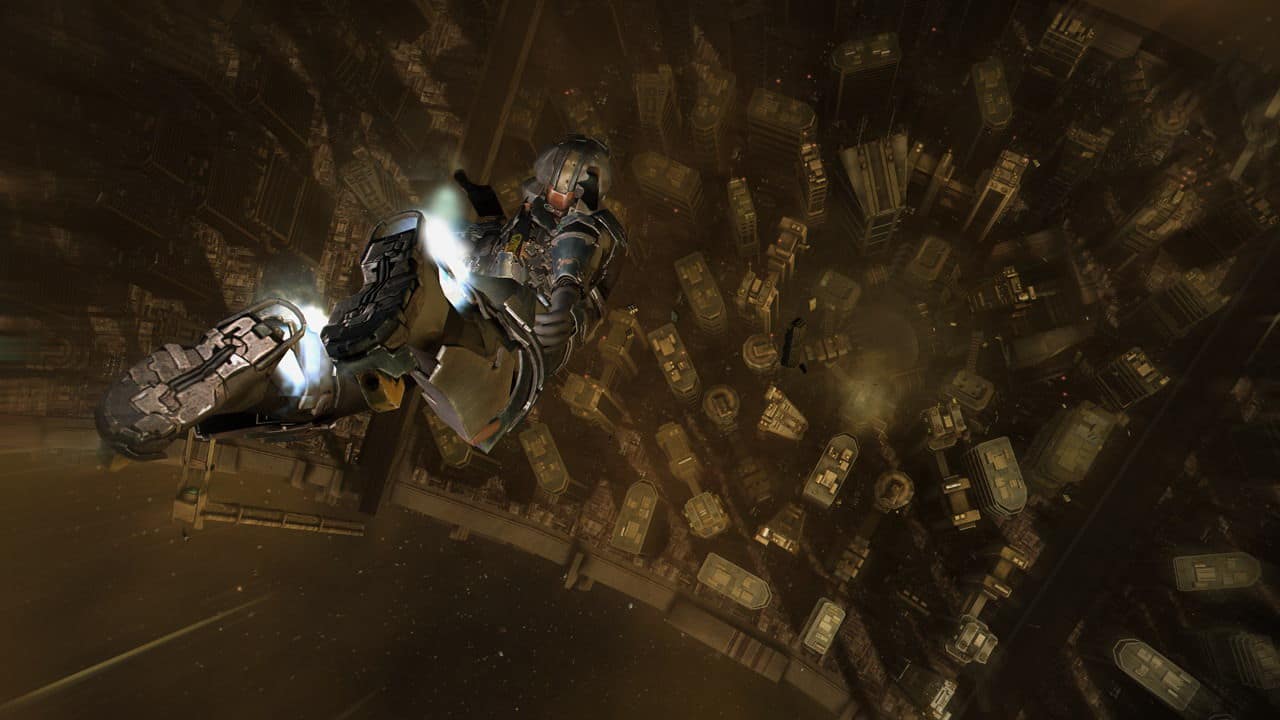
Your first gun is slapped together with spare parts. Your only true allies are a paranoid schizophrenic with rampant PTSD from his own brush with the Marker and a space trucker who just wants to get off the station. None of you are in control of the situation, let alone fully trusting of each other. Everyone else is out to exploit you, kill you, or manipulate you to their own ends. You are truly, utterly, out of your depth, no matter how effective an arsenal you’re packing.
It’s for this reason that I’m actually okay with Dead Space 2’s habit of throwing you into little semi-interactive set pieces and quick-time events. You might only be able to aim instead of shoot, or only be able to fly around incoming debris that’d impale you in a second, but that restriction makes sense.
Again, Dead Space 2 doesn’t take away control for the sake of having a tighter grip on you — it does it so you realize Isaac only has that much control too. You’re both in this together, getting through by the skin of your teeth, and the second you aren’t fighting necromorphs, you’re just as vulnerable as any civilian. The only time you directly fight a human sees your shoulder and hand perforated, leaving you nearly dead. Yet it’s not even the living (or undead) that are the greatest threat.
In Dead Space, no one was really all that surprised when Nicole Brennan turned up dead. Not only was it obvious narratively, but also when you lined up the first letter of each chapter to eventually spell out “NICOLE IS DEAD.” What’s surprising is how Dead Space 2 uses that for more than a reason for Isaac to be sad. Though Nicole is dead, she actually boasts a massively expanded role. Like Nolan Stross, the other Marker survivor, Isaac is haunted by visions of Nicole that talk back to him.
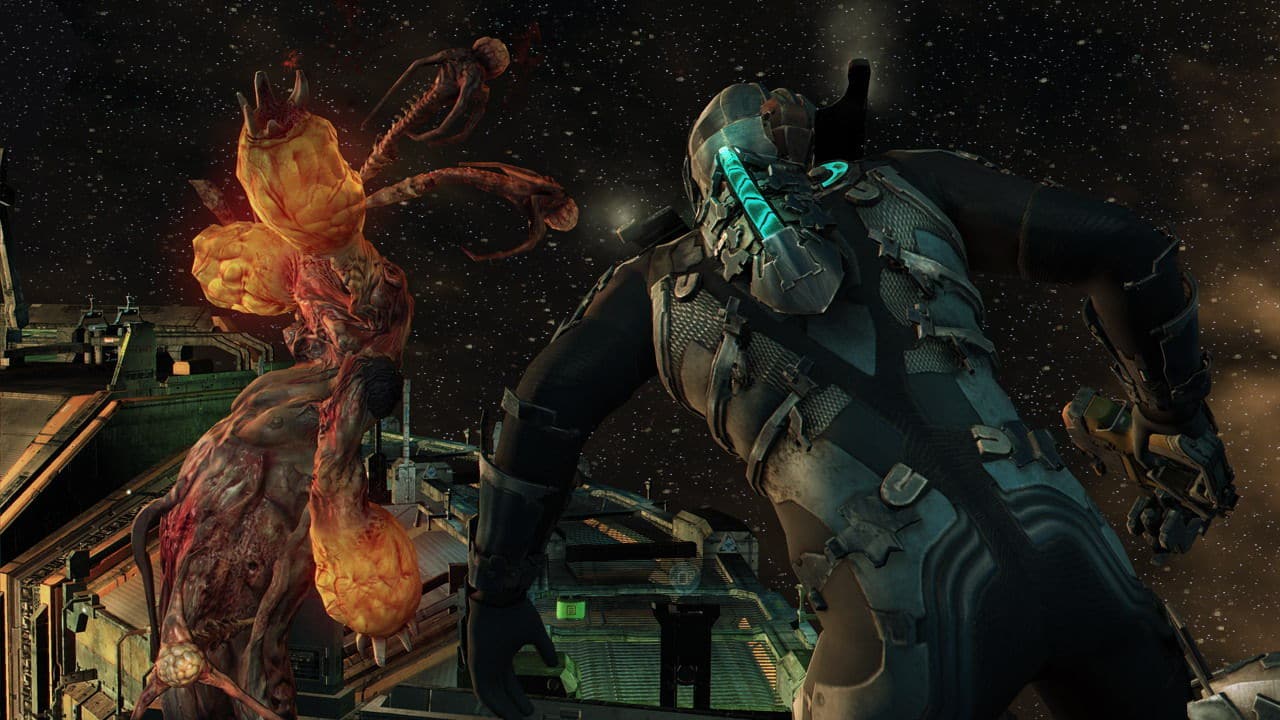
At first, Nicole seems like nothing more than a phantom of his guilt, but then things take a turn. Her arguments stop being vague condemnations, instead addressing how Isaac is the one causing these visions to be toxic. Not even the Marker is trying to torture Isaac — he’s doing that plenty well himself.
The pain manifests not just through Nicole, but also with the return to the USG Ishimura from the first game. This comes right as Isaac finally starts working with Nicole and processing his repressed pain. By confronting the horrors of the Ishimura again, you return empowered, clearing areas that once took hours in around a single hour’s time. It’s a tangible moment that symbolizes Isaac making strides to go beyond the horrors he endured years prior. You realize not even the Ishimura itself was the worst thing he experienced — he just jumps and yells at flashbacks to the events there. Instead, it’s his failure to reach Nicole, his guilt in even getting her the assignment on the ship as a “favor,” that’s haunting him.
Rather than encouraging repression or bitterness, Dead Space 2 encourages embracing compassion, even for those we’ve lost. It’s about realizing that you can’t protect everyone and instead doing what you can for those around you. The very last set piece hinges on someone else reaching out to literally pull Isaac from a pit of despair when he discovers this phantom Nicole’s true plans for him.
As with the gameplay, it’s not simply fear that Dead Space 2 throws at you, but dread and regret. These sorts of feelings linger far longer. Isaac outright arguing with and cussing out Nicole in the early hours speaks to how tired he is of all the painful memories. He almost loses sight of how much he loved the real woman to begin with, as well as his instinct to help others. He’s not some macho guy out to prove something like so many protagonists at the time of Dead Space 2’s release. He’s infinitely more relatable — flawed, defensive, yet kind when the moment permits.
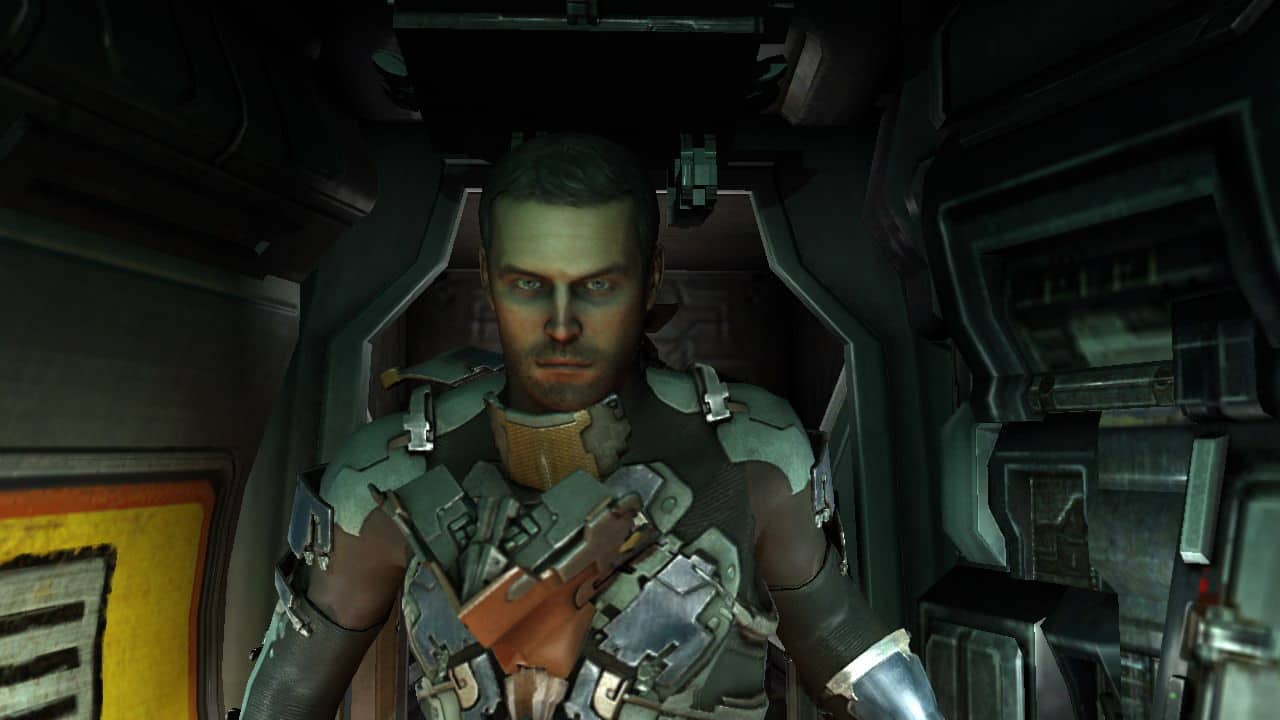
All of this plays out across a story where everyone has designs on you. The government, the Unitology cultists, the Marker itself through Nicole — they’re all trying to convert you into something they can use. Each opponent wants to rob you of something, yet in turn, their harshness, their greed, and their selfishness brings them all crumbling down. It’s only the two characters who had each other’s backs purely out of kindness and concern that are left standing. There’s a lot to chew on there.
Most importantly, amid all this drama, there’s still humor. Rather than try for arthouse impenetrability or pure screaming in your face, Dead Space 2 opts for more dimensionality. At the surface is a serviceable but predictable series of plot events and character dynamics. These aspects tend to have more bleak humor while characters are cursing as things go wrong. All the while, the aforementioned themes of mourning and self-forgiveness swell in the background, begging to be dug into.
Thus, Dead Space 2 gets to have the cake of campy Evil Dead 2 horror moments alongside meaningful, thoughtful exploration of processing trauma. It’s balanced and as deep as you’re willing to take it. You can seek absolution, or you can just shoot some zombies. It’s up to you — your agency is paramount, even beyond the realm of traditional gameplay.
So yeah, Dead Space 2 might not leave you trembling at night in terror. It’s louder and easier to play. Yet to dismiss its unique approach to survival horror is a disservice to what Visceral Games achieved. Just like F.E.A.R., Splatterhouse, Until Dawn: Rush of Blood, and Doom 3, Dead Space 2 doesn’t have to run from more fluid gameplay or a faster pace to be meaningful. It might not take the traditional method, but that’s all the more reason for more games to explore how to best utilize these methods with modern technology. Hopefully, the Dead Space remake will do just that. Even if it doesn’t, I’ll always have Dead Space 2.
Though I’m just saying, a VR port of Dead Space: Extraction shouldn’t be out of the question. Just throwing it out there, EA Motive!

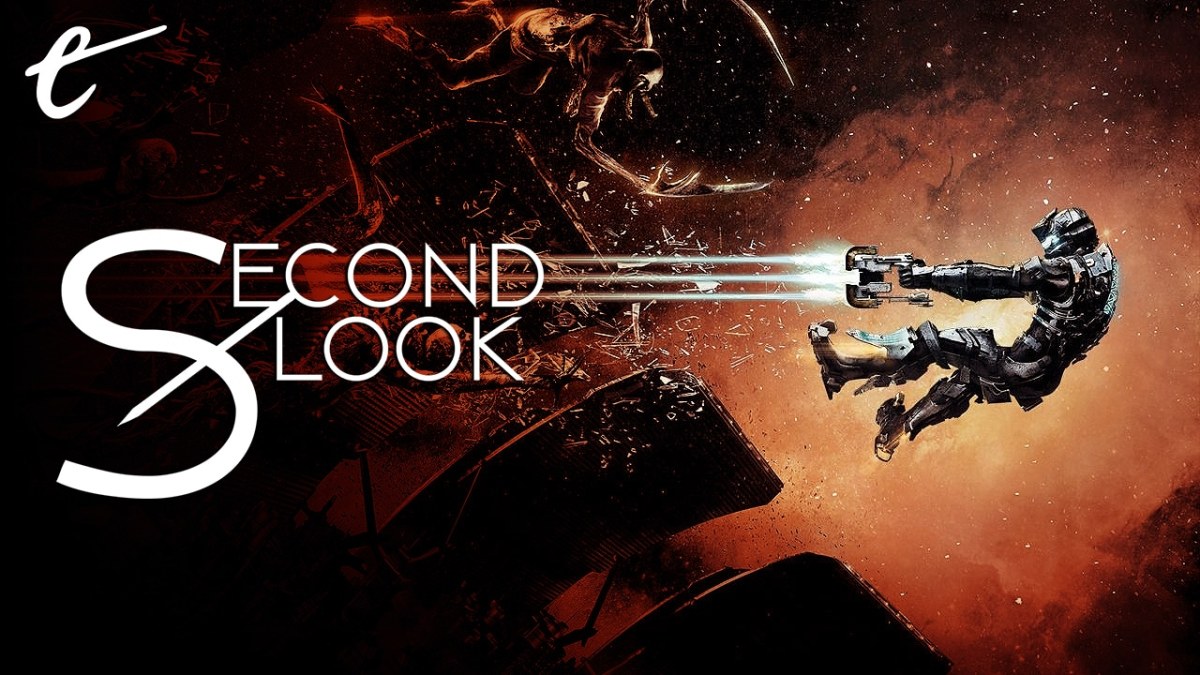




Published: Mar 31, 2022 11:00 am